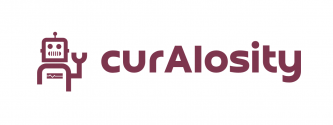Table of Contents
Can AI Replace teachers? In the fast- evolving geography of education, Artificial Intelligence( AI) has surfaced as a groundbreaking technology with the eventuality to revise the way we educate and learn. Can AI Replace Teachers? As AI continues to make emotional strides, the question arises Can AI replace teachers? This content has sparked expansive debates among teachers, policymakers, and tech suckers. In this comprehensive composition, we will claw into the pros and cons of AI in education, exploring its capabilities, limitations, and the future it holds for both teachers and learners.
Understanding the part of AI in Education
Before we dive into the debate, it’s essential to grasp the part of AI in education. AI is a branch of computer wisdom that involves creating intelligent machines that can perform tasks generally taking mortal intelligence. In the educational environment, AI can dissect data, process information, and acclimatize its responses to give individualized literacy gests for scholars. Can AI Replace teachers?
The Pros of AI in Education
1. individualized literacy at Scale
One of the significant advantages of AI in education is its capability to give individualized literacy gests to scholars. AI- powered algorithms can dissect individual literacy patterns, strengths, and sins, enabling the creation of knitter- made study plans for each pupil. This substantiated approach ensures that learners can progress at their own pace, fostering a deeper understanding of the subject matter.
2. Instant Feedback and Assessment
Traditional assessment styles frequently involve time- consuming grading processes. AI- driven assessment tools, on the other hand, can give instant feedback to scholars, allowing them to identify areas that bear enhancement instantly. This real- time feedback enhances the literacy process and empowers scholars to make necessary adaptations to their study strategies.
3. Virtual tutoring sidekicks
AI- powered virtual tutoring sidekicks can be a precious addition to classrooms. These digital sidekicks can handle routine executive tasks, answer scholars’ questions, and indeed engage in interactive exchanges, making the literacy terrain more dynamic and engaging.
4. stoked Reality and Immersive literacy
AI can grease stoked reality gests , bringing abstract generalities to life and making learning further interactive and immersive. Can AI Replace Teachers? This technology allows scholars to explore literal events, trip to distant lands, or anatomize complex scientific marvels in a virtual terrain, enhancing appreciation and retention.
The Cons of AI in Education – Can AI Replace Teachers?
1. Lack of mortal Connection
One of the primary enterprises regarding AI in education is the implicit loss of mortal connection. tutoring involves emotional intelligence, empathy, and the capability to understand and support scholars on an individual position. AI, while effective in processing data, may struggle to replicate the mortal touch that teachers bring to the classroom. Can AI Replace teachers?
2. Limited Creativity and Critical Allowing
Education aims to nurture creativity and critical thinking chops in scholars. While AI can deliver structured information effectively, it might warrant the capability to inspire imagination and encourage out- of- the- box thinking, which are essential for a holistic literacy experience.
3. Data sequestration and Security
Integrating AI into education raises questions about data sequestration and security. AI systems collect and process vast quantities of pupil data to give individualized literacy gests . icing that this data remains secure and is used responsibly is a pivotal challenge.
4. Technical Limitations and Accessibility
AI perpetration in education relies heavily on access to advanced technology and robust internet connectivity. In regions with limited coffers or poor structure, scholars might be left before, aggravating educational inequalities.
Striking the Balance The Future of AI in Education
As the debate continues, it’s vital to fete that AI isn’t meant to replace teachers entirely but to round their sweats. The true eventuality of AI in education lies in its capability to empower teachers, enhance their tutoring methodologies, and optimize the literacy process for scholars.
By automating routine tasks, AI frees up teachers’ time, allowing them to concentrate on fostering creativity, critical thinking, and emotional intelligence in their scholars. Can AI Replace Teachers? Also, AI- powered analytics can give precious perceptivity to teachers, helping them identify learning gaps and develop targeted interventions.
Conclusion- Can AI Replace teachers?
In conclusion, the question of whether AI can replace teachers remains complex and nuanced. While AI brings tremendous advantages in terms of substantiated literacy, instant feedback, and interactive gests , it must be courteously integrated into the educational ecosystem.
The future of education is really intertwined with AI, but striking the right balance between technology and mortal commerce will be critical. Embracing AI as an supporter rather than a contender will lead to a harmonious and effective educational geography that empowers both preceptors and learners likewise. Can AI Replace Teachers? Let us embrace the transformative power of AI while cherishing the dateless wisdom and warmth that only preceptors can give.
Top 5 FAQs About AI Replacing Teachers in Education
- Can AI personalize learning for students?
- Yes, AI has the potential to personalize learning for students based on their individual needs and preferences. By analyzing students’ learning patterns, AI can provide tailored feedback and support, leading to improved learning outcomes.
- Can AI provide consistent teaching quality across different classrooms and schools?
- Yes, unlike human teachers, AI-powered teaching can offer consistent teaching quality regardless of geographical or socio-economic conditions. This can help level the playing field for disadvantaged students.
- Will AI be able to replace the emotional connection students have with their teachers?
- No, one of the drawbacks of AI replacing teachers is the lack of emotional connection. Human teachers inspire, encourage, and mentor students, offering a unique level of empathy and understanding that AI currently cannot replicate.
- Can AI match the creativity and innovation of human teachers?
- No, AI is designed to work within specific parameters and algorithms, limiting its ability to provide the same level of creativity and innovation as human teachers. Human educators can adapt their teaching style, use humor, and create engaging lesson plans, which are essential for a positive learning environment. Can AI Replace Teachers?
- What are some ethical concerns associated with replacing teachers with AI?
- Replacing teachers with AI raises ethical concerns about job loss and its impact on society. Additionally, there are uncertainties about how AI will handle sensitive issues such as diversity and inclusion, which are central to effective teaching.
Conclusion
In summary, while AI can bring benefits to education, it is unlikely to completely replace human teachers. Can AI Replace Teachers? AI should be viewed as a tool to enhance the learning experience, provide personalized support, and complement the work of educators, rather than as a complete substitute for teachers. The role of human teachers remains critical in fostering emotional intelligence, creativity, and adaptability in the classroom.

